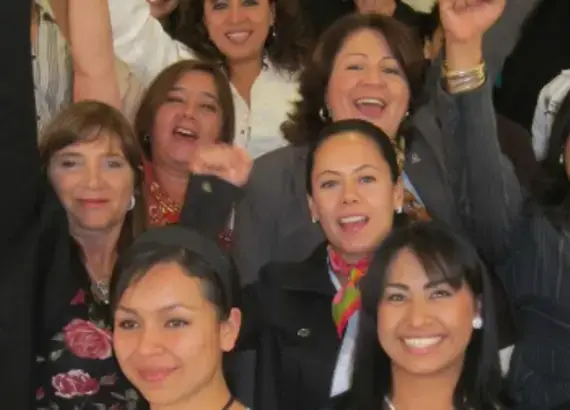
Success Story
Seeking Voice and Opportunity: Women in an Urbanizing World
Cities are at the center of a tremendous global demographic shift. Today, more than half the population lives in cities, and by 2050, that number could increase to as much as two-thirds of humanity—a stunning change when compared to past demographic trends. Along with their population growth, cities are also growing in importance and stature worldwide. Increasingly, they are shaping national and global agendas alongside or even ahead of countries, with mayors, for example, rising to prominence in global discussions on issues such as climate change and global trade.
With urbanization can come increased prosperity. While cities often provide enhanced social, economic and political opportunities for women and men, urbanization has been a boon for women in particular, leading in many cases to their increased access to employment, services and infrastructure, education and legal rights. Yet urbanization’s benefits have not been evenly distributed, and the growing inequality of urban environments has generated extra barriers for women—especially for those identifying with historically marginalized groups.
In recognition of the impact of cities, NDI, with funding from the Kate Spade Foundation, commissioned the Institute for Women’s Policy Research to develop a White Paper on Gender, Urbanization and Democratic Governance. This report closely examines cities and their governance, and focuses in particular on the experiences of women in cities and how they are able to participate in or influence the decisions that affect their lives. The report documents the many ways in which women, who make up more than 50 percent of urban populations, face both opportunities and challenges in their search for better lives for themselves and their families. It concludes with a strong call for cities to govern in ways that recognize and respond to both women’s and men’s needs.
“There is evidence that social norms change more quickly in urban environments,” said NDI vice president Shari Bryan, noting that more doors can open for women as cultural norms shift. But even so, women “remain excluded from critical conversations on how those cities are run,” and their needs as citizens are too often ignored. Even in countries with high levels of women in national level governance, women remain significantly underrepresented in local governments, and their voices often go unheard by city officials, urban planners and policymakers.
As countries look ahead, attention to cities and good governance have emerged as clear prerequisites for sustainable change in the UN Open Working Group’s proposed Sustainable Development Goals, with both issues named among the potential goals for the post-2015 agenda. Taken together with the proposed goal on gender equality and women’s empowerment, they suggest that women will be as much the drivers as the beneficiaries of this change. This will require women’s full and equal participation in public life and leadership on all levels. The questions raised by the white paper and its recommendations for the future provide food for thought as cities seek democratic solutions to the challenges of increasing equality and prosperity among all their citizens.
